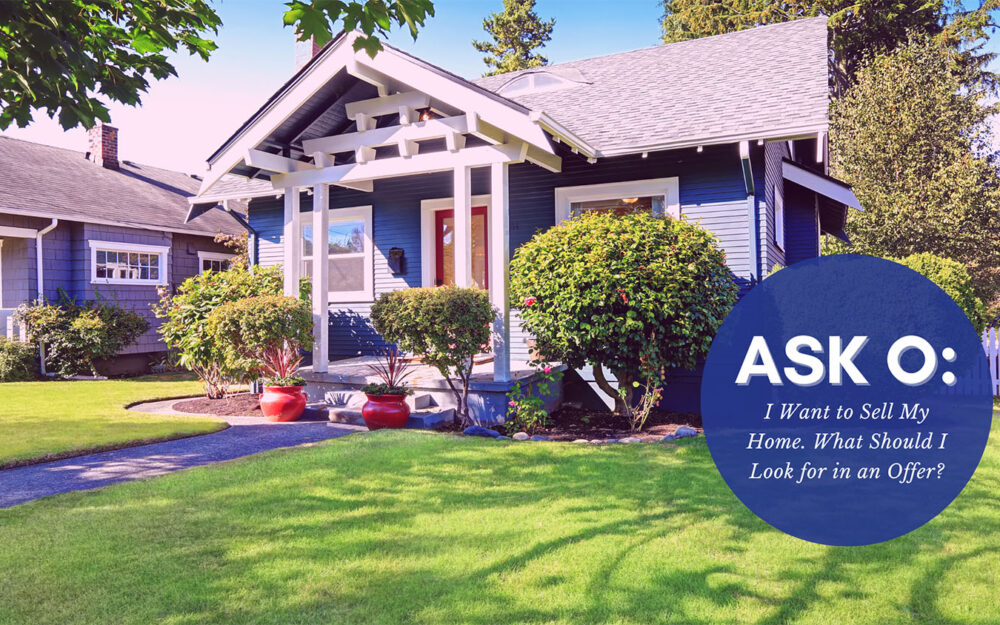
Dear Olivia,
I’m thinking about selling my home and am wondering what a “good offer” looks like?
Sincerely,
Moving On
When people think of selling their home, they obviously focus on the sales price and how much money they can make on the sale of the property.
But when you consider an offer on your home, the price the buyer is willing to pay is just one part of the equation. To get the best offer, here’s a few other things you should think about.
What’s the Timeline?
Let’s face it – moving is zero fun, so when you entertain offers from buyers, you want to ensure that the timeline suits your needs.
For example, you might get competing offers at the full asking price, but the first offer has a 30-day close and the second offer has a 45-day close.
If you need to get out of your home quickly, obviously the offer with the 30-day close aligns with your needs better. But not everyone needs to move quickly, so don’t be afraid to take an offer with a longer close period (or ask for a longer close period during negotiations).
How Will the Seller Pay for the Home?

Let’s assume you’ve listed your home for sale, and you’ve gotten two offers – an all-cash offer and an offer from a buyer that is getting a home loan.
On the one hand, an all-cash offer can be a much quicker transaction because there’s no wait for the buyer to get loan approval. If you’re in a rush to sell, an all-cash offer might be the way to go.
On the other hand, when buyers pay in cash, they have a lot of bargaining power. For example, they might offer below the asking price or ask for concessions for upgrades or repairs.
If a buyer is getting a home loan, the escrow period will be longer. But, you have more bargaining power than you do when working with an all-cash buyer. This could mean that you can get a higher price for your home.
In either case, your Realtor will ask for verification that the buyer can afford your home. An all-cash buyer needs to present a bank statement showing that they have the necessary funds. A buyer with a mortgage loan should have a pre-approval letter from their lender.
How Many Contingencies are There?
A final point to think about when you’re fielding offers on your home is the number of contingencies that the buyer is requesting.
Contingencies can be any number of things, from a home inspection to an appraisal to financing. A buyer might even need to sell their home first before they can close the deal on your home.
The more contingencies there are, the more complicated the transaction might be. In fact, if you agree on a set of contingencies with a buyer, and one or more of those contingencies aren’t met, the buyer might be able to back out of the deal and take their earnest money with them.
That’s why all-cash offers are so attractive to so many sellers – it removes a lot of the risk of the deal falling apart.
At the end of the day, the price you get for your home is paramount. But consider these other factors when you go through offers on your home. Depending on your situation, the timeline for closing, the manner in which the seller will pay for the home, and the number and type of contingencies could be just as important as the price.
If you have any questions about buying or selling your home, get in touch with me at 307-856-3999!
~Olivia
